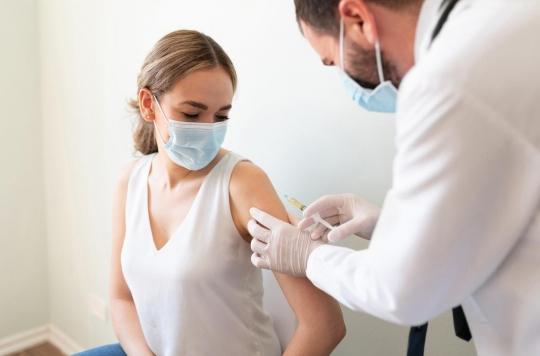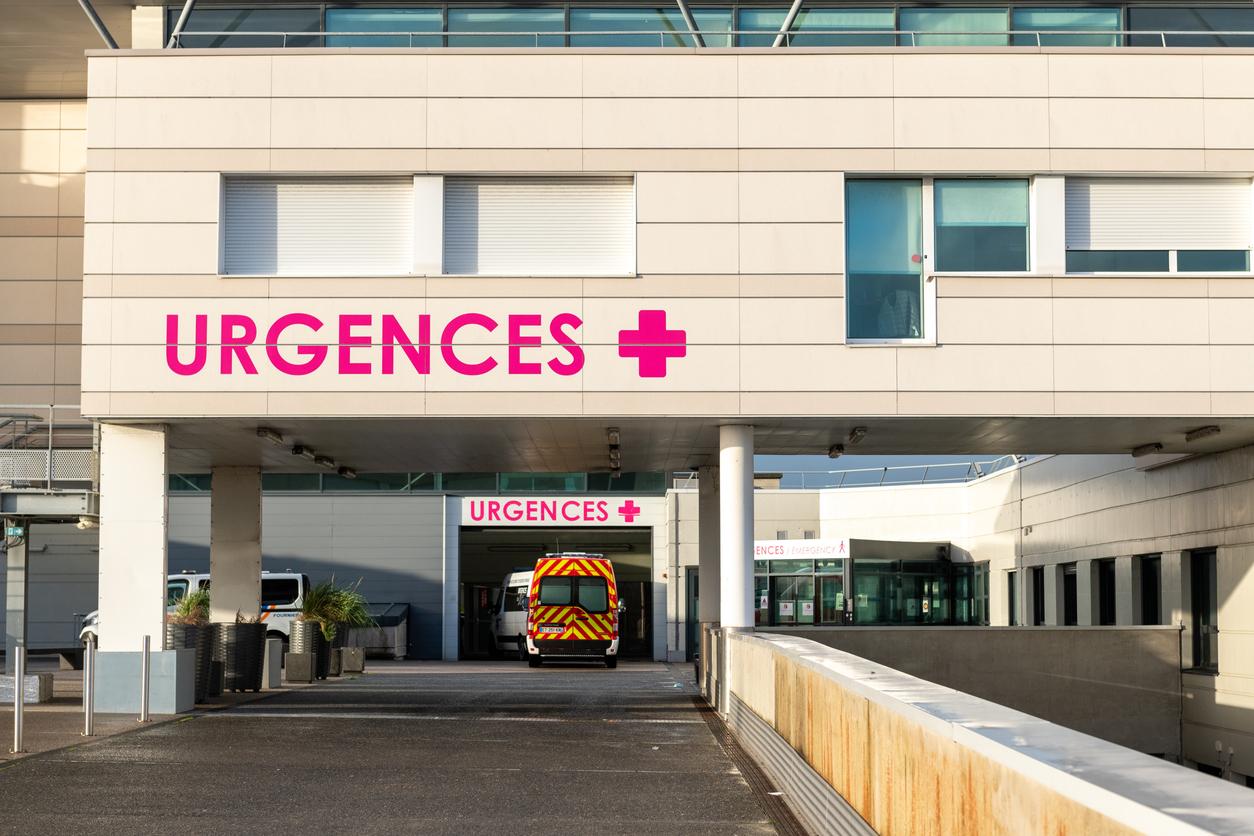The effectiveness of the 2-dose vaccination is confirmed in a new French study on the Delta variant and would break the link between the spread of the Delta variant and hospitalizations. This study is consistent with hospitalization data from Great Britain and Israel.

- The Delta variant could partly evade the immune system
- Study of 59 people shows 95% efficacy of two-dose vaccines against this variant
- The rise in hospitalizations in Great Britain mainly concerns unvaccinated people
The SARS-CoV-2 B.1.617 variant, or “Delta variant” (or “Indian variant”), was identified in the fall of 2020 in India and has since become widely predominant in that country and in the United Kingdom. The Delta variant has since spread to many countries, and of course to France, where it will become the predominant variant this weekend, according to an interview with the Minister of Health on France Inter.
This variant would be around 60% more contagious than the Alpha variant, itself more contagious than the original variant, and the source of the epidemic wave in Great Britain in the fall and in the rest of Europe at the beginning of the year 2021. The Indian variant would thus be twice as contagious than the original coronavirus.
A new French study, published in Nature, confirms that the Delta variant would be less sensitive to antibodies developed after infection or vaccination at one dose. This study thus confirms previous studies suggesting that the Delta variant could partly evade the immune system, although to a lesser extent than the Beta variant, which first appeared in South Africa.
An analysis of the areas targeted on the Spike protein
The lineage of the Indian variant includes three main subtypes (B1.617.1, B.1.617.2 and B.1.617.3), harboring various mutations in the Spike protein and it is these mutations that could increase the immune evasion potential of the variants.
The French researchers tested the ability of antibodies produced by natural infection and following one or two doses of the different vaccines to neutralize the Alpha, Beta and Delta variants, compared to a reference variant similar to the original version of the virus.
Less sensitivity to natural and vaccine antibodies
The researchers first looked at blood samples from 103 people who had previously been infected with the other coronavirus variants. In this analysis, the Delta (Indian) variant is much less sensitive than the Alpha (English) variant to blood samples from these convalescent, unvaccinated individuals. One dose of vaccine significantly increased the susceptibility of the variant, suggesting that people who have recovered from Covid-19 do indeed need to be vaccinated with one dose to defend against certain variants.
The team then analyzed samples from 59 people after they had received a first dose or 2 doses of the AstraZeneca or Pfizer-BioNTech vaccines. After a single dose, only 10% of blood samples were able to neutralize the Delta (Indian) and Beta (South African) variants in the test tube. But the second dose bumped that number up to 95%.
There was no major difference in the levels of antibodies obtained by the two vaccines but with titers 3 to 5 times less effective against the Delta (Indian) variant than against the Alpha (English) variant. Thus, the spread of the Delta (Indian) variant is clearly associated with an escape, at least partial, of antibodies targeting non-RBD and RBD Spike epitopes.
Less sensitivity to monoclonal antibodies
The researchers also isolated an infectious Delta strain from a traveler returning from India and examined its susceptibility to monoclonal antibodies which are used in treatment during Covid-19. They also tested this variant against the antibodies present in the sera of Covid-19 convalescents, and against other strains.
The Delta variant would thus be more resistant to neutralization by certain anti-NTD and anti-RBD monoclonal antibodies, including Bamlanivimab, which bind with difficulty to its Spike protein. Sera from convalescent patients collected up to 12 months after symptoms were 4 times less potent against the Delta (Indian) variant, compared to the Alpha (English) variant).
Consistency with real life data
Real-life data from Israel and Britain, the countries most advanced on vaccination, largely support these findings. Reassuringly, they suggest only one dose of vaccine would nevertheless be sufficient to prevent hospitalizations or deaths from SARS-CoV-2.
The increase in the number of contaminations, observed in Israel in vaccinated people, would be mainly due to asymptomatic people, simply carriers of the virus. The majority of these people would be over-diagnosed because of the very active policy of testing and tracing around the sick in this country.
Indeed, the hospitalizations are not rising in Israel and they are increasing again very slowly in Great Britain, mainly among unvaccinated people. Vaccination would therefore break the link between the spread of the Indian variant and hospitalizations, possibly from the first dose and, a fortioriafter 2 doses, according to the UK government.
Discussions on the 3th dose
Much of the current discussion revolves around the need for a 3th dose in most vulnerable peopleof which approximately 30% not develop a sufficient immune response.
This 3th dose, however, would not be necessary in vaccinated, healthy individuals according to the FDA and the US CDCeven if, at the same time, Pfizer and BioNTech have applied for marketing authorization in this regard.
The priority in France therefore remains the acceleration of the vaccination of those who are not vaccinated, especially if they are over 50 years old… and including at the beach if necessary.
.

















